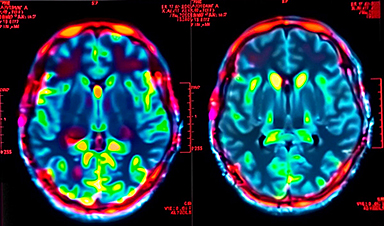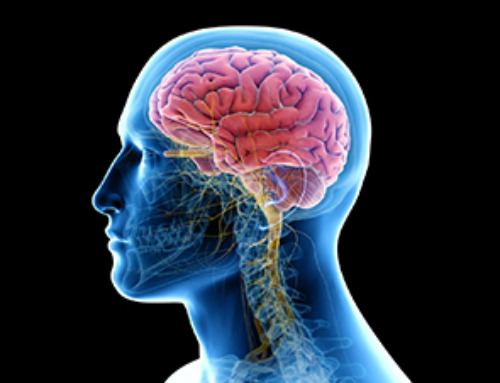A massive new study sheds light on how cannabis affects the brain, particularly during cognitive tasks.
Researchers analyzed over 1,000 young adults and found that both heavy lifetime use and recent cannabis consumption significantly reduced brain activity during working memory tasks. This impairment was linked to worse performance on tasks requiring focus, problem-solving, and instruction-following. Brain imaging revealed that key regions responsible for decision-making and attention were affected.
Cannabis Use and Brain Function: A Groundbreaking Study
A new study published in JAMA Network Open examines how both recent and long-term cannabis use affects brain function during cognitive tasks.
As the largest study of its kind, researchers analyzed over 1,000 young adults aged 22 to 36 using brain imaging technology. They found that 63% of heavy lifetime cannabis users showed reduced brain activity during a working memory task, with a similar impact seen in 68% of recent users.
Reduced Brain Activity and Working Memory Impairment
This decrease in brain activity was linked to poorer performance on working memory — a crucial function that helps people retain and use information for tasks. For instance, working memory enables someone to follow instructions, mentally visualize concepts, or solve problems like math equations.
"As cannabis use continues to grow globally, studying its effects on human health has become increasingly important. By doing so, we can provide a well-rounded understanding of both the benefits and risks of cannabis use, empowering people to make informed decisions and fully comprehend the potential consequences," said the study's first author Joshua Gowin, PhD, assistant professor of radiology at the University of Colorado School of Medicine on the University of Colorado Anschutz Medical Campus.
In the study, heavy users are considered young adults who've used cannabis more than 1000 times over their lifetime. Whereas, using 10 to 999 times was considered a moderate user, and less than 10 times was considered a nonuser.
MRI Scans Reveal Cannabis' Impact on Brain Function
The researchers studied the neural response of participants during a magnetic resonance imaging (MRI) session and gave them seven cognitive tasks to complete. The tasks tested working memory, reward, emotion, language, motor skills – such as tapping a finger to map brain control, relational assessment and theory of mind.
The researchers found that cannabis had a statistically significant effect on brain function during working memory tasks, meaning the observed impact is very unlikely to be due to random chance. This effect was seen in both recent and lifetime cannabis users. The impact was less significant for the other tasks.
"We applied the highest standards to our research, setting rigorous thresholds for statistical significance across all seven cognitive function tests. To minimize the risk of false positives, we employed false discovery rate (FDR) correction. While some of the other tasks indicated potential cognitive impairment, only the working memory task showed a statistically significant impact," adds Gowin.
Key Brain Regions Affected by Heavy Cannabis Use
During working memory tasks, the researchers found heavy cannabis use appeared to reduce brain activity in certain areas of the brain (dorsolateral prefrontal cortex, dorsomedial prefrontal cortex, and anterior insula). These regions of the brain are involved in important cognitive functions such as decision-making, memory, attention, and emotional processing.
However, Gowin mentions their research also suggests that abstaining from using cannabis before doing a cognitive task could help to improve performance. "People need to be aware of their relationship with cannabis since abstaining cold turkey could disrupt their cognition as well. For example, heavy users may need to be more cautious," Gowin says.
Unanswered Questions: The Future of Cannabis Research
He adds, "There are a lot of questions we still need answers to regarding how cannabis impacts the brain. Large, long-term studies are needed next to understand whether cannabis use directly changes brain function, how long these effects last, and the impact on different age groups."
Reference: "Brain Function Outcomes of Recent and Lifetime Cannabis Use" by Joshua L. Gowin, Jarrod M. Ellingson, Hollis C. Karoly, Peter Manza, J. Megan Ross, Matthew E. Sloan, Jody L. Tanabe and Nora D. Volkow, 28 January 2025, JAMA Network Open.
DOI: 10.1001/jamanetworkopen.2024.57069
News
Brain waves could help paralyzed patients move again
People with spinal cord injuries often lose the ability to move their arms or legs. In many cases, the nerves in the limbs remain healthy, and the brain continues to function normally. The loss of [...]
Scientists Discover a New “Cleanup Hub” Inside the Human Brain
A newly identified lymphatic drainage pathway along the middle meningeal artery reveals how the human brain clears waste. How does the brain clear away waste? This task is handled by the brain’s lymphatic drainage [...]
New Drug Slashes Dangerous Blood Fats by Nearly 40% in First Human Trial
Scientists have found a way to fine-tune a central fat-control pathway in the liver, reducing harmful blood triglycerides while preserving beneficial cholesterol functions. When we eat, the body turns surplus calories into molecules called [...]
A Simple Brain Scan May Help Restore Movement After Paralysis
A brain cap and smart algorithms may one day help paralyzed patients turn thought into movement—no surgery required. People with spinal cord injuries often experience partial or complete loss of movement in their arms [...]
Plant Discovery Could Transform How Medicines Are Made
Scientists have uncovered an unexpected way plants make powerful chemicals, revealing hidden biological connections that could transform how medicines are discovered and produced. Plants produce protective chemicals called alkaloids as part of their natural [...]
Scientists Develop IV Therapy That Repairs the Brain After Stroke
New nanomaterial passes the blood-brain barrier to reduce damaging inflammation after the most common form of stroke. When someone experiences a stroke, doctors must quickly restore blood flow to the brain to prevent death. [...]
Analyzing Darwin’s specimens without opening 200-year-old jars
Scientists have successfully analyzed Charles Darwin's original specimens from his HMS Beagle voyage (1831 to 1836) to the Galapagos Islands. Remarkably, the specimens have been analyzed without opening their 200-year-old preservation jars. Examining 46 [...]
Scientists discover natural ‘brake’ that could stop harmful inflammation
Researchers at University College London (UCL) have uncovered a key mechanism that helps the body switch off inflammation—a breakthrough that could lead to new treatments for chronic diseases affecting millions worldwide. Inflammation is the [...]
A Forgotten Molecule Could Revive Failing Antifungal Drugs and Save Millions of Lives
Scientists have uncovered a way to make existing antifungal drugs work again against deadly, drug-resistant fungi. Fungal infections claim millions of lives worldwide each year, and current medical treatments are failing to keep pace. [...]
Scientists Trap Thyme’s Healing Power in Tiny Capsules
A new micro-encapsulation breakthrough could turn thyme’s powerful health benefits into safer, smarter nanodoses. Thyme extract is often praised for its wide range of health benefits, giving it a reputation as a natural medicinal [...]
Scientists Develop Spray-On Powder That Instantly Seals Life-Threatening Wounds
KAIST scientists have created a fast-acting, stable powder hemostat that stops bleeding in one second and could significantly improve survival in combat and emergency medicine. Severe blood loss remains the primary cause of death from [...]
Oceans Are Struggling To Absorb Carbon As Microplastics Flood Their Waters
New research points to an unexpected way plastic pollution may be influencing Earth’s climate system. A recent study suggests that microscopic plastic pollution is reducing the ocean’s capacity to take in carbon dioxide, a [...]
Molecular Manufacturing: The Future of Nanomedicine – New book from Frank Boehm
This book explores the revolutionary potential of atomically precise manufacturing technologies to transform global healthcare, as well as practically every other sector across society. This forward-thinking volume examines how envisaged Factory@Home systems might enable the cost-effective [...]
New Book! NanoMedical Brain/Cloud Interface – Explorations and Implications
New book from Frank Boehm, NanoappsMedical Inc Founder: This book explores the future hypothetical possibility that the cerebral cortex of the human brain might be seamlessly, safely, and securely connected with the Cloud via [...]
Global Health Care Equivalency in the Age of Nanotechnology, Nanomedicine and Artificial Intelligence
A new book by Frank Boehm, NanoappsMedical Inc. Founder. This groundbreaking volume explores the vision of a Global Health Care Equivalency (GHCE) system powered by artificial intelligence and quantum computing technologies, operating on secure [...]
Miller School Researchers Pioneer Nanovanilloid-Based Brain Cooling for Traumatic Injury
A multidisciplinary team at the University of Miami Miller School of Medicine has developed a breakthrough nanodrug platform that may prove beneficial for rapid, targeted therapeutic hypothermia after traumatic brain injury (TBI). Their work, published in ACS [...]





















